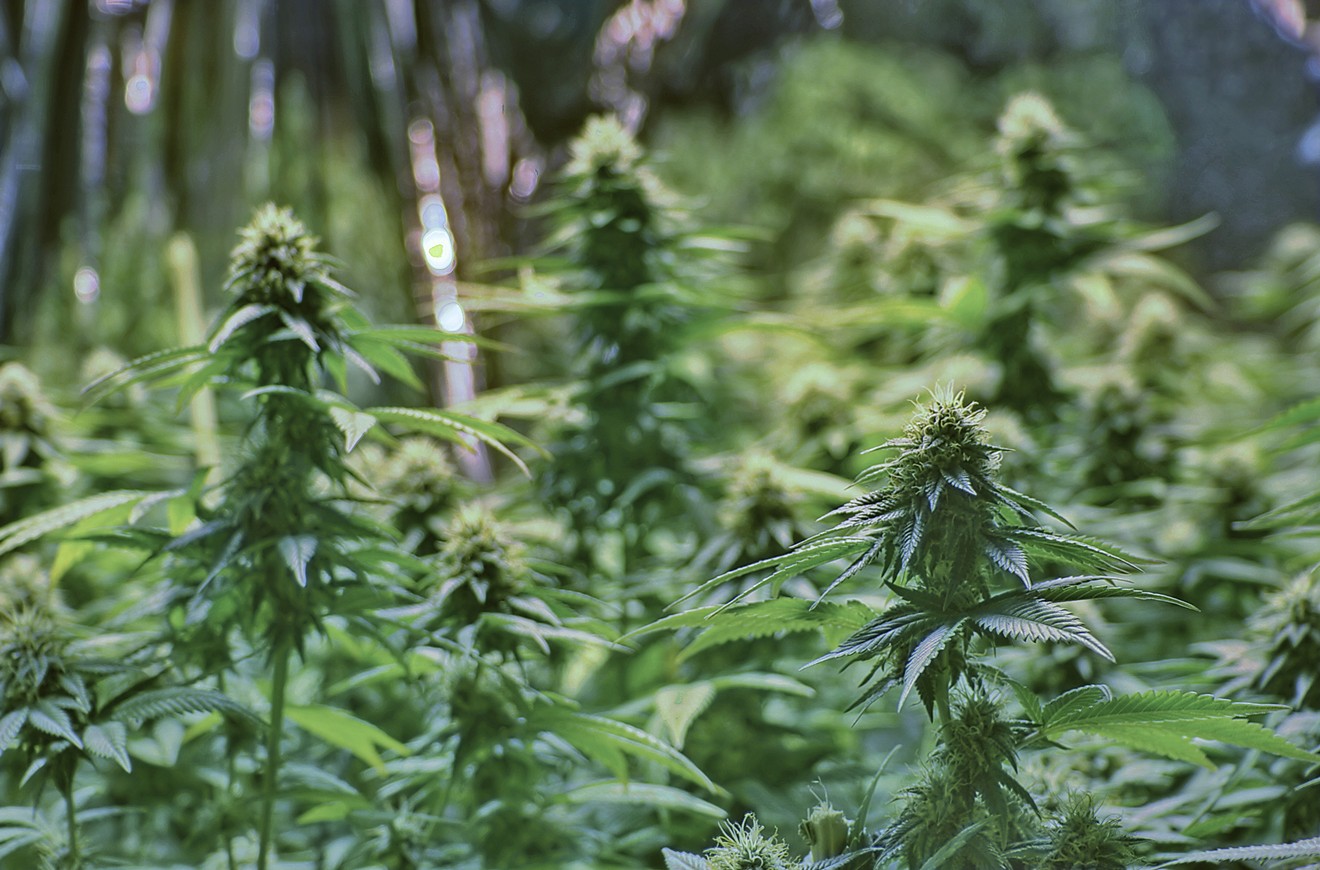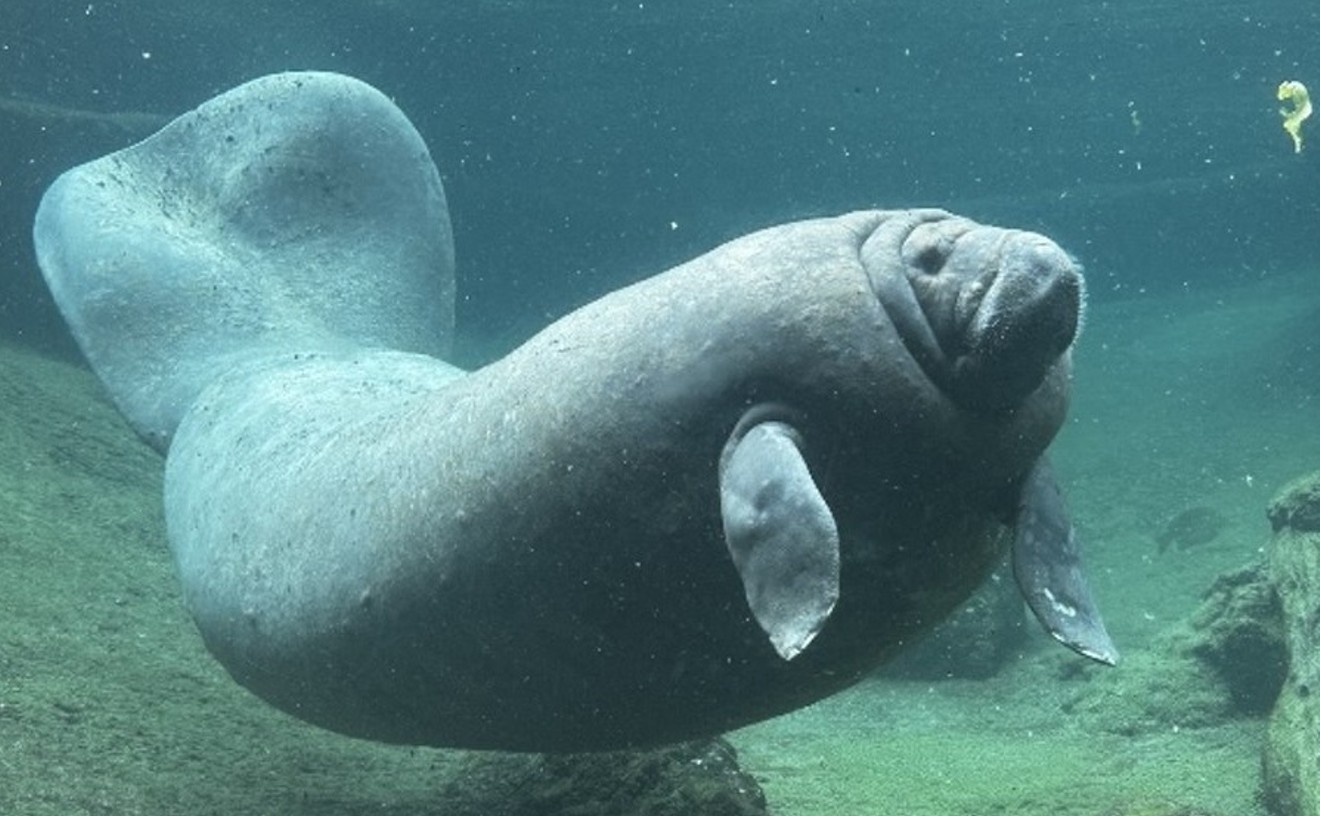But here's the thing: That voluntary
1. The City of Miami wasn't even giving out marijuana citations until this year because it didn't have to.
Last month, a New Times investigation found arrests for possession of small amounts of pot have actually risen each year since Miami-Dade commissioners passed an ordinance giving cops leeway to hand out citations instead. Even worse, data suggested most civil citations were handed to white people, while police continued to arrest hundreds of black people for the same offense.
The Miami Police Department, meanwhile, never bothered to begin issuing citations at all even though city leaders signed off on the plan in February 2017. Now, MPD Chief Jorge Colina says he's not only implementing the policy but also ordering his officers to issue citations the first and second times a person is caught with small amounts of weed.
Colina announced his policy, which goes a step further than any other police department in Miami-Dade County, after filmmaker Billy Corben pushed him on Twitter about MPD's delays in starting the plan.
2. MDPD is basically giving citations only to white people.
New data from the Miami-Dade Police Department confirms the conclusions of a recent New Times investigation showing that thousands of South Floridians are needlessly arrested and saddled with criminal records for possession of small amounts of marijuana. The strategy is employed in a racially biased fashion and wastes tens of millions of taxpayer dollars.
County officers have handed out more than 10,000 civil citations for possession of less than 20 grams of pot in the past three years, the data shows. Of the 10,078 total citations issued between July 1, 2015, and July 1, 2018, 72 percent — or 7,268 — were given to white people. Twenty-eight percent — or 2,789 — were given to black people. The remaining 21 citations were issued to Asian people or those of unknown or uncategorized origin. The department does not include Hispanic or Latino as a category, only white, black, Asian, or unknown.
"The civil citation data shows the same disturbing racial bias among the issuance of citations that exists among Miami Dade arrests, criminal charges, and sentences," says Raymer Maguire, manager of the ACLU of Florida's Campaign for Criminal Justice Reform.
3. Marijuana arrests can still get people deported.
Per WLRN:
A recent series of stories by the Miami New Times found that police in Miami-Dade County have made tens of thousands of arrests for small amounts of marijuana, even after a 2015 policy allowed them to issue civil citations for those same offenses.
Those optional arrests have at times led to life-changing consequences for the suspects.
Several of the people charged with possession of less than 20 grams of marijuana have since been issued requests for detention by Immigration and Customs Enforcement, according to a review of county jail booking records. That often marks the beginning of the deportation process.
At a townhouse with a sun-cracked wooden facade in Overtown, Diego Rodriguez spoke about his former neighbor, a Cuban national who records show was arrested last month on a marijuana charge. Upon being booked into Miami-Dade County Jail, ICE requested that the county hold him for an additional 48 hours until officers could pick him up.
“Last we heard he was detained after he ran into some trouble with the law,” said Rodriguez. “We would always just see him going to work in the morning. He never bothered anyone around here.”
4. White kids at Ultra were allowed to put their drugs in "amnesty boxes."
Miami Beach Police arrested 40 people, many of them African-American like Plummer, this past weekend for misdemeanor drug charges — primarily for small amounts of marijuana. There were a total of 130 arrests for all crimes. That number far exceeded the 27 people whom City of Miami Police took into custody in three days during Ultra 2018. (The city didn't say how many of the Ultra arrests were related to small amounts of pot.)
In addition, MBPD arrested only 14 people for pot during Miami Music Week this year.
“Minorities are the favorite target when it comes to drug enforcement,” says Karen Goldstein, the deputy director of Florida’s National Organization for the Reform of Marijuana Laws (NORML). “That’s no question.”
Beach cops made all of those pot arrests during Urban Beach Week despite a 2015 ordinance that gave officers the option of issuing citations in lieu of arresting anyone caught with less than 20 grams of marijuana, a misdemeanor amount. After the order passed 5-0, it was touted by activists and politicians, including former Miami Beach Mayor Philip Levine, as a step toward legalization.
For years, advocates and visitors have complained about an overwhelming police presence and anti-African-American bias during Memorial Day weekend. Though Beach authorities have strongly denied the allegation, the number of arrests for pot clearly send the opposite message.
When the ordinance was approved, however, Miami Beach Police Chief Dan Oates warned visitors it wasn't a license to smoke in public.
“If you’re using or smoking marijuana, if you’re smoking marijuana in public, we’re going to charge you,” he said. “If you have marijuana in your possession, if you’re driving an automobile, we’re still going to charge you.”
In a just world, the ordinance would result in about 400 fewer arrests a year, Oates said at the time.
But activists say the option to issue citations isn’t being exercised enough. And cops use it selectively: No citations for pot were issued during Urban Beach Week. (It's possible some of those 40 misdemeanor arrests were for drug paraphernalia or other charges, but likely most were for small amounts of weed.)
Miami Police took a very different approach during Ultra, which is not a predominantly African-American event. Concertgoers could drop off drugs and weapons in “amnesty boxes... no questions asked,” according to a New Times article published before the event. The only things that could have been considered amnesty boxes during Urban Beach Week were trash cans.
5. Weed arrests are still rising — and young people of color are still the hardest hit.
In the past three years, Miami-area police have sent 5,255 people to jail for possession of less than 20 grams of pot, according to a New Times review of Miami-Dade booking data. What's worse: Most of those arrests, which cost taxpayers tens of millions of dollars for arresting, transporting, and housing prisoners, could have been taken care of with a simple ticket.
Pot arrests have been rising steadily since June 2015, when Miami-Dade County commissioners agreed to allow tickets rather than jail time for possession of less than 20 grams (three-quarters of an ounce) of pot. Even more disturbing, a random review of 50 of the 5,000-plus incident reports shows arrestees are almost always men of color, and the charges are almost always dropped. About one in five of those arrested overall were people under the age of 22.












